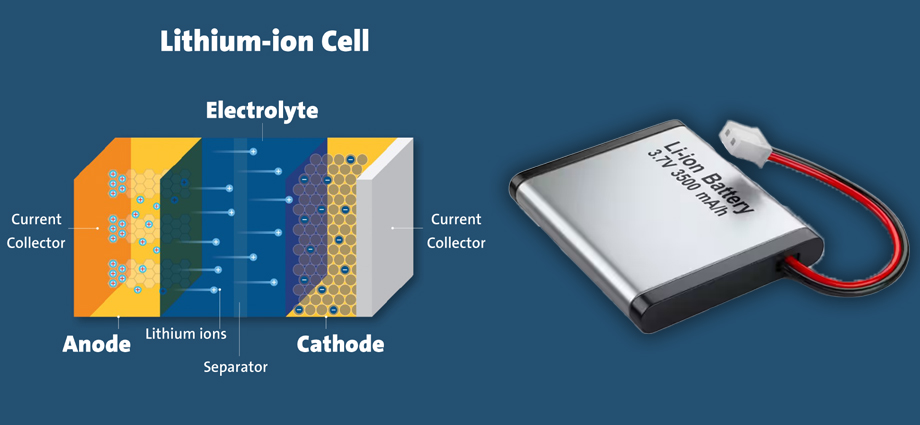
Lithium-ion (Li-ion) batteries are widely used in portable electronic devices, electric vehicles, and renewable energy systems due to their high energy density, low self-discharge rate, and long cycle life. However, they also have some disadvantages.
Advantages of Lithium-ion batteries:
- High energy density: Li-ion batteries have a higher energy density than other rechargeable batteries, meaning they can store more energy in a smaller and lighter package.
- Low self-discharge rate: Li-ion batteries have a low self-discharge rate, which means they can hold their charge for a longer time when not in use compared to other types of rechargeable batteries.
- Long cycle life: Li-ion batteries can be recharged hundreds of times, making them more durable and cost-effective over time.
- No memory effect: Li-ion batteries do not have a memory effect, which means they do not need to be fully discharged before recharging, unlike older battery technologies.
- High voltage: Li-ion batteries have a higher voltage per cell than other types of rechargeable batteries, which means they can be used in devices that require high voltage.
Disadvantages of Lithium-ion batteries:
- Safety concerns: Li-ion batteries can be a fire hazard if they are damaged, overcharged, or exposed to high temperatures. The risk of fire can be reduced by using high-quality cells and appropriate charging and discharging methods.
- Limited lifespan: Li-ion batteries have a limited lifespan and eventually lose their ability to hold a charge, which means they need to be replaced.
- High cost: Li-ion batteries are more expensive than other rechargeable battery technologies, which can make them less accessible for some applications.
- Environmental impact: The manufacturing and disposal of Li-ion batteries can have an environmental impact due to the materials used in their construction, such as lithium, cobalt, and nickel.
- Temperature sensitivity: Li-ion batteries are sensitive to temperature, and extreme temperatures can affect their performance and lifespan. They should be stored and used within a recommended temperature range to ensure optimal performance and safety.